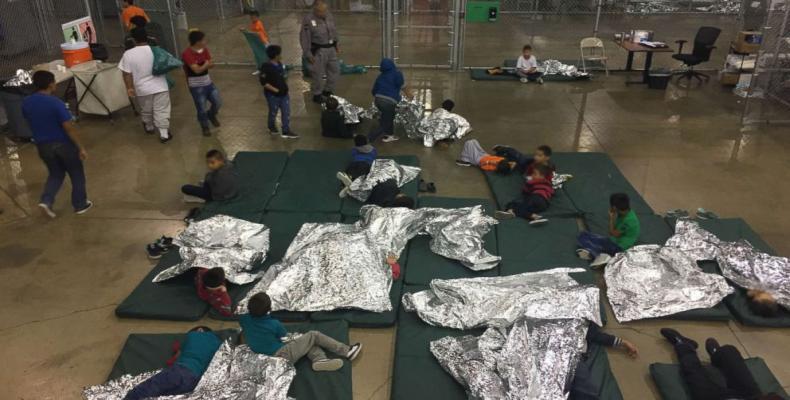Mexico City, June 20 (RHC)-- Central American countries and Mexico have denounced the U.S. policy of separating immigrant families at its southern border. Honduras has called for the United States to stop separating immigrant children from their parents at the U.S. border, while El Salvador warned that the policy puts children's health at risk and could cause psychosocial scars.
Mexico's foreign minister Luis Videgaray on Tuesday described the separation of children from immigrant parents at the U.S.-Mexico border as "cruel and inhumane." Videgaray told a news conference that the Mexican government had made its position on the matter clear to the U.S. government and had also raised the issue with senior U.N. officials, including U.N. Secretary-General Antonio Guterres.
El Salvador's foreign ministry said in a statement that the Trump administration's hardline policy of separating immigrant parents and children violated human rights and "strongly urged" for an end to the practice. "These provisions are mainly affecting migrant children and adolescents ... exposing them to extremely adverse conditions, which will surely have consequences in their physical health and long-term psychosocial development," the statement said.
The administration of U.S. President Donald Trump has responded to an increase in immigration from Central America with a "zero tolerance" migration policy that provides for the arrest of all adults caught trying to enter the United States illegally, including those seeking asylum.
Images of children and youths sitting in concrete-floored cages in U.S. detention centers have fanned outrage over the policy. Trump administration officials have defended the policy as a way to secure the border and deter illegal immigrants.
Official figures indicate that from mid-April to May, U.S. authorities have divided more than 2,000 children from their families. Many are from Central America, where immigrants are fleeing poverty and widespread gang violence.
El Salvador insisted parents had the right to know where their children were and asked that consular officials be "speedily" notified of where the children have been taken.
Honduran President Juan Orlando Hernandez on Monday also called for an end to the family separations after meeting with U.S. Secretary of State Mike Pompeo, echoing the call that children's rights should come first.
For its part, the government of Guatemala, which has tried to show support for Trump and backed his decision to move the U.S. embassy in Israel to Jerusalem, refrained from criticism. "We are respectful of foreign policy on migration issues," Guatemalan presidential spokesman Heinz Heimann told a news conference.
In other news related to the separation of families, MSNBC host Rachel Maddow choked up on air Tuesday night while trying to read the beginning of an Associated Press story, which revealed that the youngest children separated from their parents at the border are being sent to “tender age” shelters.
Maddow tried to read the item at the end of “The Rachel Maddow Show” but struggled to get the words out, glancing off camera at one point to ask if they could put up a graphic instead.
She finished the first sentence of the story, but handed off to Lawrence O’Donnell’s show before finishing the second sentence.
“Sorry, that does it for us tonight. We’ll see you again tomorrow,” Maddow said before O’Donnell started his show.
Mexico and Central American nations denounce U.S. policy of separating immigrant families

Related Articles
Commentaries
MAKE A COMMENT
All fields requiredMore Views
- Trump reportedly orders military to draw up plans to seize Panama Canal
- Ecuador's Electoral Debate: Luisa González urges Noboa not to lie to the people and keep his campaign promises
- Bolivia demands sovereign access to the sea and begins a new stage in relationship with Chile
- Thousands of protesters in Spain call for a boycott of Israel and an end to genocidal attacks on Gaza
- Cuba to play women's soccer friendlies against Peru

